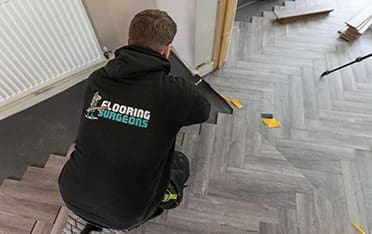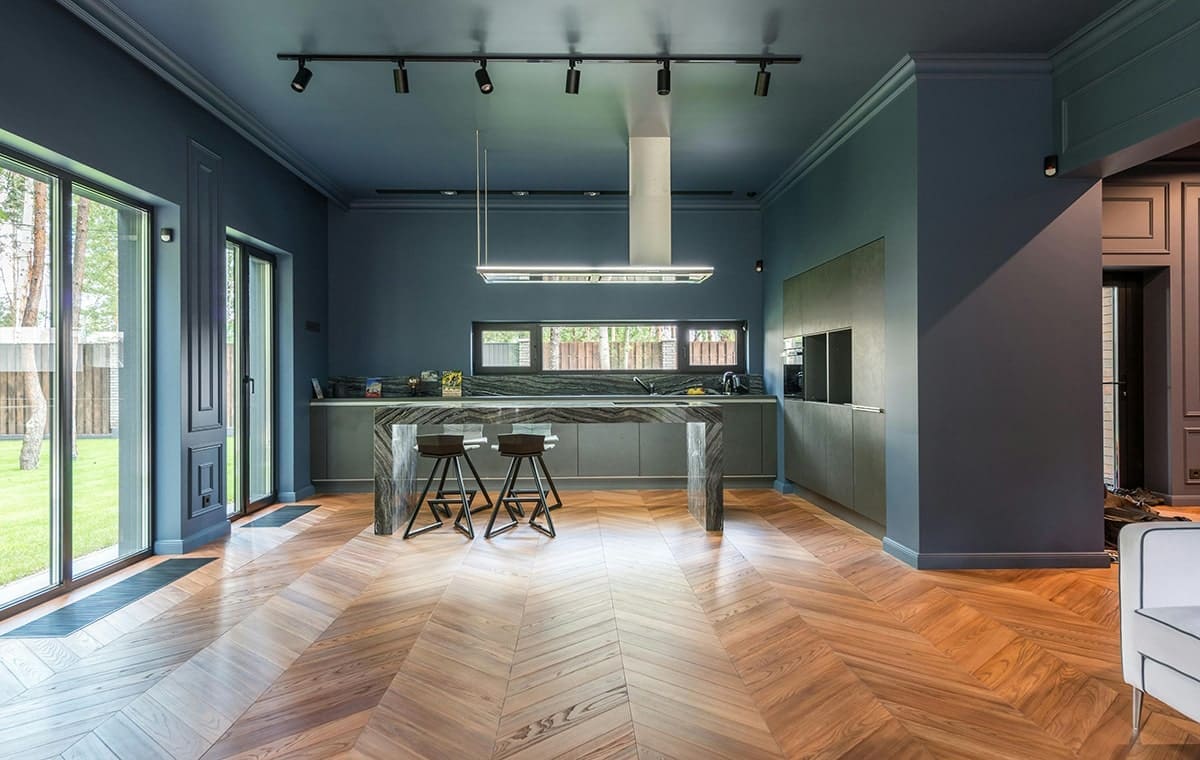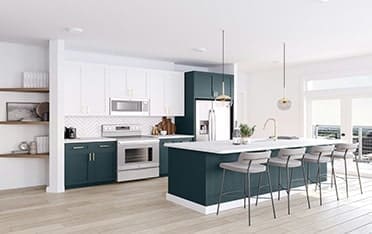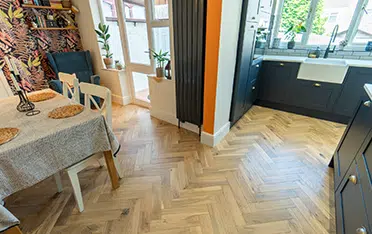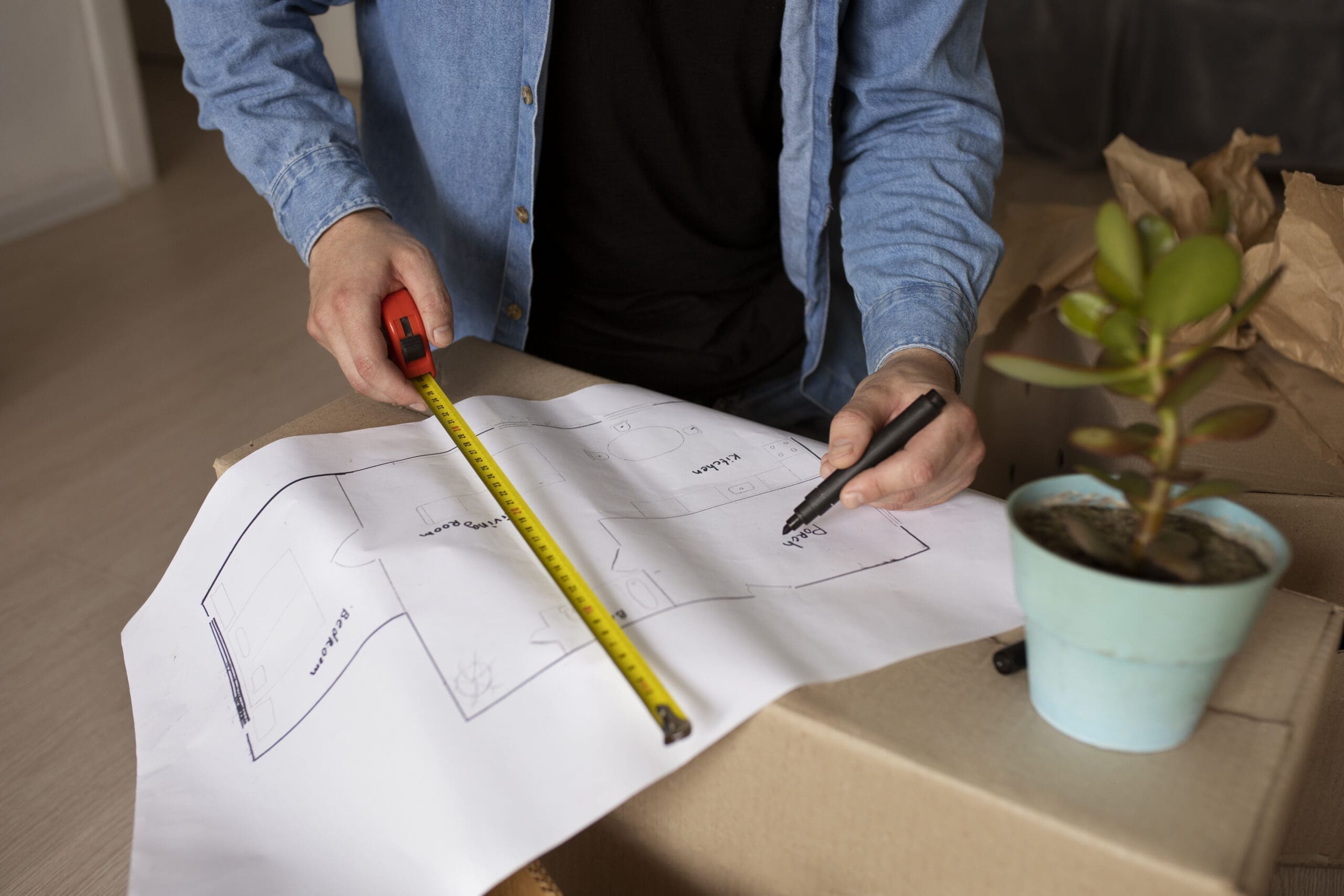Most people choose Laminate flooring for its affordability, durability and ease of installation. However, one crucial factor often gets overlooked; thickness. Laminate flooring thickness can impact everything from durability and comfort to noise reduction and even how your flooring feels underfoot. So, how do you choose the right one? This guide will clearly and concisely explain everything you need to know. Let’s dive in!
Understanding Laminate Flooring Thickness:
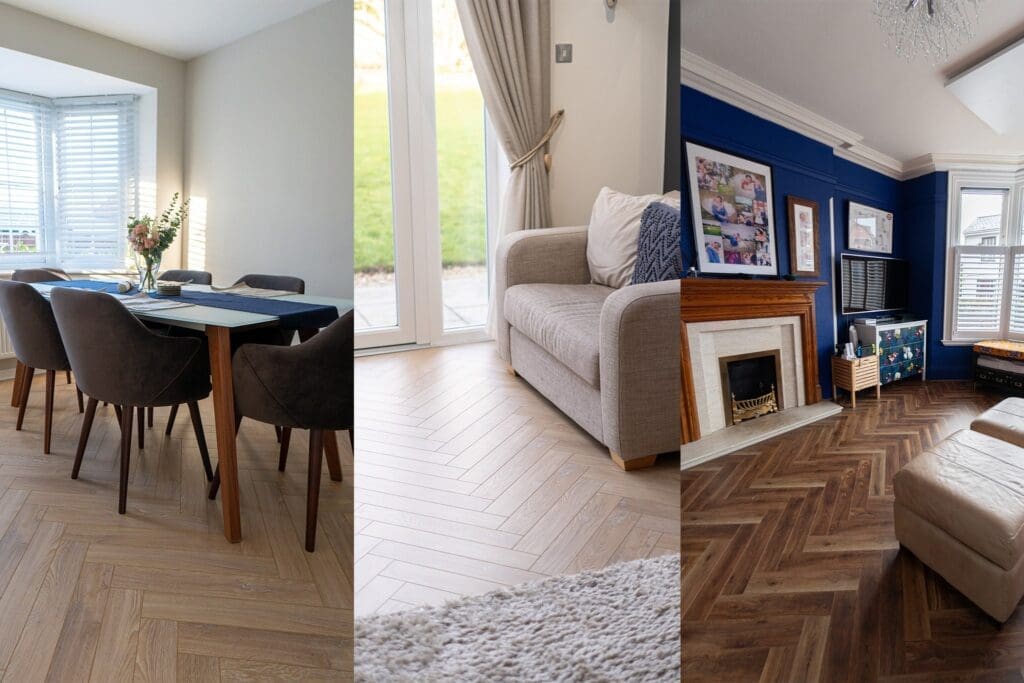
Laminate flooring thicknesses are usually measured in millimetres (mm). There are a variety of laminate thicknesses. Some of the most common ones are:
6mm – 7mm
6mm-7mm Laminate flooring is the thinnest option and is usually the most budget-friendly. It is also attractive for DIY enthusiasts! This laminate thickness is suitable for areas with less foot traffic. However, it may not provide as much durability or sound insulation in comparison with thicker options. Additionally, it also tends to be more susceptible to dents, wear and damage over time. It offers less insulation and sound-deadening properties. This thickness is ideal for guest rooms, home offices or storage rooms.
8mm
The 8mm laminate flooring is a little thicker, but offers a balance of good sound insulation, durability and affordability. This thickness suits areas with moderate foot traffic, like general household spaces.
10mm
A 10mm Laminate flooring thickness provides better durability, insulation and sound-absorbing properties. It’s also a more resilient option for medium-to high-traffic areas, like dining rooms, kitchens and hallways. Naturally, these enhanced properties make 10mm laminate a more expensive option.
12mm
12mm laminate flooring offers the highest durability, insulation and sound-deadening properties. It is one of the thickest and most expensive options you can choose from, but closely mimics the feel of hardwood flooring.
A 12mm laminate thickness is the best choice for high-traffic areas, rooms with extreme temperature fluctuations and commercial and industrial-grade scenarios.
In our store we offer 8mm, 10mm and 12mm laminates.
| Thickness | Key Features | Best Suited For |
| 6mm – 7mm | – Budget-friendly, ideal for DIY projects – Thinner, less durable and lower sound insulation – More susceptible to dents and wear | Guest rooms, home offices, storage rooms (low-traffic areas) |
| 8mm | – Good balance of durability andaffordability – Good sound insulation – Suitable for moderate foot traffic | Living rooms, bedrooms, general household areas |
| 10mm | – Increased durability and insulation – Better sound absorption – More resilient for medium to high-traffic areas | Dining rooms, kitchens, hallways |
| 12mm | – Thickest, most durable and best sound insulation – Closely mimics hardwood feel – Suitable for high-traffic and commercial use | High-traffic areas, kitchens, dining rooms, commercial spaces |
Factors Which Affect the Performance of Laminate Flooring Thickness
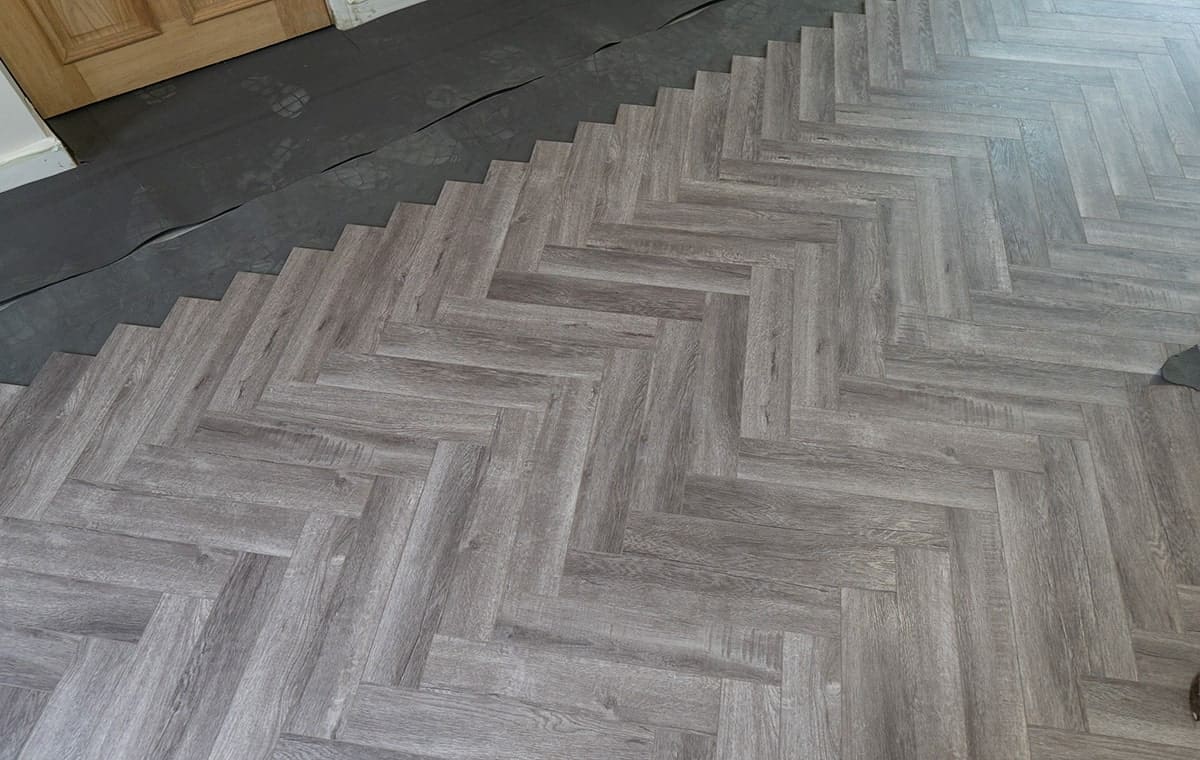
Some essential factors like foot traffic, subfloor conditions and household requirements affect the performance of laminate flooring.
Sub-floor condition
The sub-floor condition is a big factor in choosing the right laminate flooring thickness.
Thicker laminate flooring is usually best for unlevel subfloors Enhancing, balancing and lowering the chance of gaps or cracks. A thinner laminate requires a smooth, well-prepped subfloor to avoid warping or an uneven finish.
Underlay requirements
The right thickness of the underlay is also an essential decision. You should select the correct underlay thickness depending on the laminate thickness and the subfloor condition. A thicker laminate might not need an underlay with a greater thickness, potentially saving you money and installation time.
Sound Insulation
If sound insulation matters to you, choosing a thicker laminate flooring will help you achieve softer footfall, lower echo, and a more natural sound.
Comfort
Thicker Laminate Flooring offers enhanced comfort as it creates more stability, cushioning and sound insulation. This makes it ideal for those who plan on using it within high traffic areas.
Quality and Durability
Laminate flooring comprises four distinct layers: the backing layer, the core layer, the decorative layer and the top wear layer. The wear layer, the topmost layer of laminate flooring, protects the floor from damage. Therefore, thickness is a key factor in determining how well the floor will withstand heavy use and how long it will last.
Tips to Consider When Choosing Laminate Flooring Thickness

When choosing the best laminate thickness for your home, define your needs and priorities. Here are four tips you should consider
- You must determine your budget. Thicker laminate floors tend to be more expensive but are also a good long-term investment. However,, you can consider thinner laminate in low traffic areas or parts of your home that aren’t exposed to heavy wear to save money.
- Choose the thickness of your laminate flooring based on your room’s usage. Thicker laminate is suited for high-traffic areas, while thinner laminate is offered for spaces with less activity.
- It is always a good idea to consult experts(Surgeons!) and professionals before buying. Consulting with flooring professionals can offer valuable insights into your specific budget, preferences and home conditions.
- If you are considering underfloor heating, your underlay and laminate should be no thicker than 14mm.
Conclusion
As you can see, correctly choosing the thickness of laminate flooring plays a key role in creating the right atmosphere in your home. Deciding on a flooring thickness can be affected by subfloor evenness, noise reduction, cost, and durability. Understanding the variety of thicknesses and the features of each option can help you choose more effectively. Here at Flooring Surgeons, our wide range of laminate flooring will cater to all your needs
Check out our range today, or contact our experts to help decide on the best choice for your home and preferences.
If you have any flooring queries, email us at info@flooringsurgeons.co.uk or visit our showrooms in Birmingham and Wolverhampton!
Halesowen
214A Dudley Road. Halesowen, Birmingham, B63 3NJ
0121 274 8575
Monday – Friday: 9 AM – 6 PM | Weekends: 10 AM – 4 PM
Wolverhampton
317 Penn Rd, Wolverhampton, West Midlands, WV4 5QF
01902 836 666
Monday – Friday: 9 AM – 6 PM | Sat: 10 AM – 4 PM | Sun: Closed
info@flooringsurgeons.co.uk



